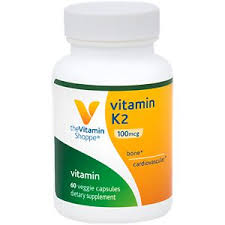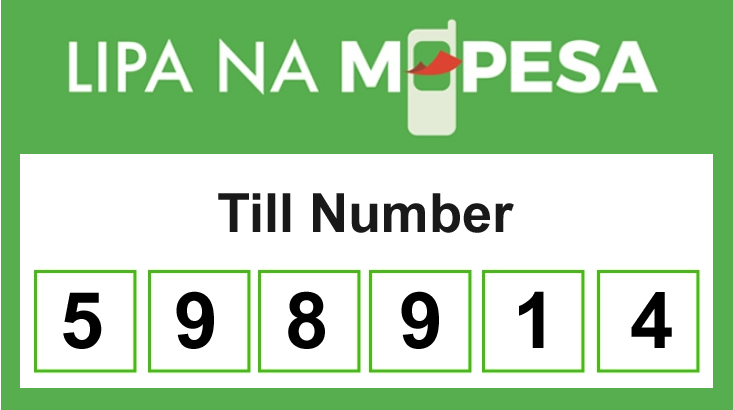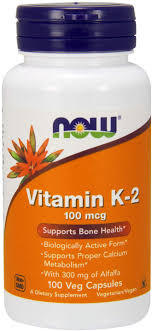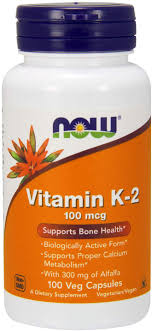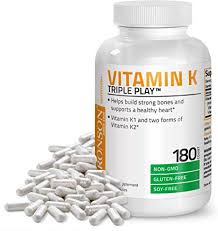Vitamin K is a fat-soluble vitamin that comes in two forms. The main type is called phylloquinone, found in green leafy vegetables like collard greens, kale, and spinach. The other type is menaquinones.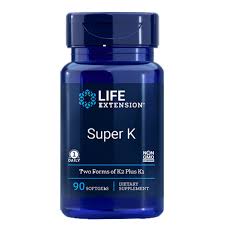
Recommended Amounts
For adults 19 years and older, the AI is 120 micrograms (mcg) daily for men and 90 mcg for women and for those who are pregnant or lactating.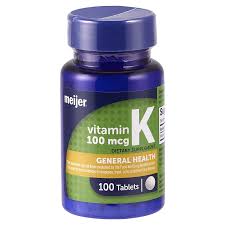
Vitamin K and Health
Vitamin K Food Sources
- Phylloquinone

- Green leafy vegetables including collard and turnip greens, kale, spinach, broccoli, Brussels sprouts, cabbage, lettuces
- Soybean and canola oil
- Salad dressings made with soybean or canola oil
- Fortified meal replacement shakes
- Menaquinones
- Natto (fermented soybeans)
- Smaller amounts in meat, cheese, eggs
Vitamin K Signs of Deficiency
Its deficiency in adults is rare. The following are the most common signs of a deficiency.
- A longer time for blood to clot or a prolonged prothrombin time (as measured in a physician’s office)
- Bleeding
- Hemorrhaging
- Osteopenia or osteoporosis
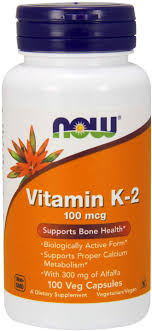
Did You Know?
- Antibiotic medicines may destroy vitamin-K-producing bacteria in the gut, thereby potentially decreasing its levels especially if taking the medicine for more than a few weeks. People who have a poor appetite while using long-term antibiotics may be at greater risk for a deficiency, and may benefit from a vitamin K supplement.
- Because it is fat-soluble, it is best to eat vitamin K foods with some fat to improve absorption. So, drizzle some olive oil or add diced avocado to your favorite leafy green salad!
